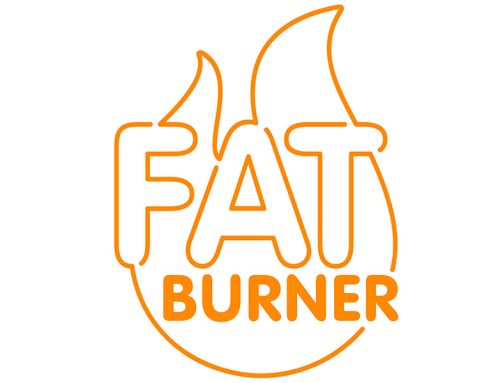Writing a series of lessons on “sure things” for fat loss isnot as easy as you’d think. There are so many opinions aboutthe “right way” to eat for getting leaner, that getting all theexperts to agree on anything occurs about as often as Haley’scomet flies by. Even the subject of dietary fat is hugely controversial. Just trymentioning “saturated fat is bad for you” in a nutrition forumthese days and you’ll see exactly what I mean. But when it comes to one particular type of fat, the vote is virtually unanimous:

Omega-3 fatty acids are labeled “essential” because your bodycan’t manufacture them, so you must get them from the foodyou eat (much like certain amino acids, vitamins and minerals).
Omega-3 fatty acids can be obtained from plant or animal sources.
The richest animal source of omega-3 is fatty fish such as salmon,mackerel, albacore tuna, rainbow trout, sardines or herring.
The fat in fish contains two important long-chain polyunsaturatedomega-3 fatty acids: eicosapentaenoic acid (EPA) and docosahexaenoicacid (DHA). These appear to be the major players responsible forthe biological activity in fish oil that produces the long listof benefits.
The richest plant sources of omega-3 fats are seed oils, flaxseeds or flaxseedoil in particular. Flaxseed contains alpha-linolenic acid (ALA) which yourbody can convert into DHA and EPA.
The list of potential health benefits from eating these “good fats”is so long, that if you couldn’t look up the scientific referencesto confirm them for yourself, you would swear I was just pullingyour leg.
Peer-reviewed research has been published on fish oil and omega-3 fatsfor the treatment, management or prevention of ALL these conditions:
cardiovascular disease, atherosclerosis, hyperlipidemia, high bloodpressure, cardiac arrhythmias, inflammatory diseases, joint pain,arthritis, osteoporosis, kidney disease, prostate cancer, coloncancer, breast cancer, skin cancer, crohn’s disease, ulcerativecolitis, Alzheimer’s, asthma, cystic fibrosis, chronic obstructivepulmonary disease, sickle cell anemia, glaucoma, lupus, multiplesclerosis, fibromyalgia, cirrhosis, epilepsy, chronic fatiguesyndrome, menstrual symptoms, psoriasis, diabetes, insulin resistance,migraines, response to stress, bipolar disorder, depression, psychologicaldisorders, and metabolic syndrome.
Although it should not be implied that omega 3 fats cure all of these conditions, it’s easy to agree that omega 3 fats are healthy stuff.
Here’s why I also suggest that omega-3 fats should be added to thelist of “sure things for fat loss”:
At least a half a dozen human studies and more than two dozen animalstudies in the last 10 years suggest that the omega-3 fatty acidsfound in fish may help you burn more fat or at the very least thatthey play an important role in the fat burning process, or thata deficiency could inhibit fat burning.
Some studies found that omega 3 fats may function as fuel partitionersand increase fat oxidation. This means that omega-3’s shift glucosetoward glycogen storage and direct fatty acids away from body fatformation and toward fatty acid oxidation.
Omega-3 fatty acids also enhance the expression of the Uncouplingprotein 3 (UCP3) gene in skeletal muscle. Scientists say that thismay indirectly increase energy expenditure by dissipating caloriesas heat.
Other potential mechanisms include increased sensitivity to the”anti starvation hormone” leptin, decreased insulin, reducedfat cell proliferation and improved cell membrane fluidity.
It’s an exciting area of research and a highly publicized one as well.
If you pay attention to the news or read any fitness or nutritionliterature, you probably already knew about the benefits of omega-3fats – it’s no secret anymore.
What’s shocking is the fact that most people are still deficientin omega-3 fats, according to the latest statistics.
As with that other “super food” – vegetables – most people seemto know that they “should” be eating more healthy fats, but theystill don’t do it.
This gap between knowing what to do and actually doing it is areal problem, when it’s so easy to take advantage of the benefitsof this incredible “power nutrient.”
Here are 7 tips that can accommodate both vegetarians andfish eaters alike:
1) eat fatty fish at least twice per week and even dailyif practical and economical for you. If not, you couldsupplement with fish oil (1.5-3 grams of combined DHA/EPA daily)
2) Omega 6 fatty acids are also essential, but most peoplehave an unbalanced omega 3 to omega 6 ratio. This can beremedied by increasing the omega 3 consumption and orreducing the omega 6 consumption (by decreasing intake ofprocessed foods, refined grains, and supermarket cookingoils, with the exception of extra virgin olive oil)
3) grind up flaxseeds and sprinkle them on salads or addthem to oatmeal, protein shakes or morning cereals. Alternately,supplement with flaxseed oil; 1 tbsp is equivalent to 3 tbspflaxseeds (use as a supplement; Not for cooking)
4) snack on walnuts, which contain modest amounts of omega 3 fats (other types of nuts and seeds can also contain significant amounts of omega 3 fats)
5) increase your consumption of leafy greens whichcontain small amounts of omega 3 fats.
6) if you eat red meat, try game meats or grass fedbeef or bison. they dont have nearly the quantityof omega-3 as marine sources, but they are higher inomega-3 and have a better omega-3 to omega-6 ratiothan conventionally raised and fed beef.
7) Try omega-3 fortified eggs instead of regular eggs.
See how easy it is to get more omega-3?
With all the health benefits stacked on top of the potentialfat loss benefits, you simply can’t go wrong by making thisone change to your diet program – eat more omega 3…it’s a sure thing!
Sincerely,
Your friend and “Burn The fat coach”
Tom Venuto, CSCS, NSCA-CPT
www.BurnTheFat.com
*always consult your physician before taking any supplements or making any changes to your diet or exercise program






Re: your Omega 3 NewsletterIs it possible to take too much Omega 3 and have an adverse reaction?
Greg, yes there are some safety and side effect concerns. Consult your physician before taking ANY supplements.Below is an excerpt from my recent research report on fish oilThe full report is available fromhttp://www.burnthefatinnercircle.com/products/item18.cfmFish oil Safety and side effectsAs you consider optimal dosages, you should also consider safety and side effects. A review paper on the safety considerations of polyunsaturated fatty acids (Eritsland 2000) said that “Daily intake of polyunsaturatedfatty acids greater than 10% of total energy is not recommended. Below this ceiling, there is little evidence that high dietary intake of n-3 or n-6 polyunsaturated fatty acids implies health risks.”However, there may be some people who need to be cautious of high doses of fish oil. The AHA warns against taking more than 3 grams of EPA/DHA per day without a physician’s supervision. As with all supplements, check with yourphysician before beginning use and ask whether there are interactions between the fish oil and any medications you may be taking, whether prescription or over the counter drugs such as aspirin (Mueller 1991).Fish oil may increase bleeding time, so people with bleeding disorders or anyone taking blood-thinning medications or preparing for surgery should be cautious and consult their doctor for advice (Bang 1980, Goodnight 1981).There has also been some discussion of EPA and DHA’s ability to suppress immune response biomarkers. This is almost never mentioned in the fish oil promotional literature, for obvious reasons, but the data is out there (Thies 2001, Kew 2004, Rees 2006, Meydani 1991). In all cases of immune suppression, the doses were over 4 grams/day of DHA/EPA.Mercury poisoning has been frequently cited as a reason not to eat large amounts of fish. Mercury is a neurotoxin which is especially harmful to the growing fetus, infants and young children, and since mercury finds its way into our oceans, contamination in seafood is a real issue.Fortunately, analysis of the various fish species has shown that it’s only the larger predatory fish, higher up on the food chain, that are the most contaminated. These species include shark, king mackerel, tilefish and swordfish. Advisories have also been issued for large species of tuna (usually served as tuna steaks or sushi), being borderline, while light albacore is much lower in mercury.The seafood containing the least mercury include salmon, trout, catfish, haddock, flounder, sole, herring, tilapia, Pollock, crab, clams, scallops or shrimp. The highest amounts of omega-3 fatty acids are found in the fatty fish such as salmon, rainbow trout, herring (and also sardines) and these species have generally been found to be free of unsafe levels of mercury.The American Heart Association has issued a statement saying that for adults, the benefits of fish intake far outweigh any potential risks. For women of childbearing age, the benefits of moderate fish intake also outweigh the risks, says the AHA, excepting for the few selected species mentioned above (Etherton 2002). Minimizing exposure to mercury is mostimportant for pregnant women, women planning to become pregnant, nursing women and young children.Many people choose to get their omega-3 fatty acids from fish oil supplements, because mercury contamination does not seem to be a problem in the fish oil pills (Kris-Etherton 2002, Melanson 2005). Contaminants such as PCB’s and dioxins have been found in a few brands of fish oil supplements,however, especially cod liver oil (which is derived from the liver rather than the body of the fish).Additional concerns have been raised about overdosing on vitamin A, which is found in high concentrations in cod liver oil (Grubb, 1990). Hypervitaminosis A may be an issue if you use cod liver oil and you also get a high amount of vitamin A from other supplement or food sources. For this reason, some experts, such as Dr. Andrew Stoll, author of The Omega-3Connection, advise against using cod liver oil. Artemis Simopoulos, author of The Omega Diet, concurs. She wrote, “An ideal supplement would contain high amounts of EPA and DHA, but little or no cholesterol or vitamins A and D” (Simopoulos 1991).One reason people sometimes choose cod liver oil over regular fish oil for their omega-3 fatty acid source is because cod liver oil also contains vitamin D and it has been suggested that people who don’t get adequate sun exposure or who are otherwise potentially deficient in vitamin D could usean extra dose (Ross 2005).Copyright 2007 Tom Venuto
Tom. Thanks for your informative newsletters and posts. Not to keep bothering you, but why am I hearing 12-25 grams. By the way, I too ama trainer, all natural and already very lean. thanks
be sure you distinguish between total grams of oil and grams ofcombined EPA/DHAIm very familiar with the organizations and individuals who prescribe megadoses of fish oil, which is either based on being uniformed or just a way for supplement companies to make more moneyIf you dig through the research yourself you will see almost no research supporting more than 3 grams a day of combined EPA/DHA. take a lookDaily dosages in 5 human research trials on fish oil and fat lossCouet 1997: 1.8 gHuffman 2004 4.0 gkunesova 2006 2.8 gThorsdottir 1.5 ghill 2007 1.9 gheres the previous article — also talks about the overblown claims for how much fat can be lost by taking fish oil.fish oil helps burn fat, but not that much fat!”best regardstom
I have been reading alot on “green lipped mussels” and the advantage of them for omega 3. New Zealand doesn’t report any cases of osteoarthritis due to this, is what I have been told. I read that these mussels were a staple in their food diet and that this is why. Is there any way you could see if this is so. Thanks…Jerry
Jerrymussels as with many other types of seafood contain omega 3 fats, so they can certainly be another marine source in your diet.I havent looked at any research on how omega 3 in mussels compares to conventional fish oil or whether the mussels contain any additional nutrients unique to that species.however, I wouldnt jump into the mussel omega 3 supplementswithout seeing the data first which shows it is equally cost effective as fish oilthis reminds me of krill oil, which people hailed as far superior to fish oil (athough krill is a crustacean, not a mollusk)Some people asked me the same thing about krill oil, they wanted to know if it was better than fish oil.Krill is indeed a fine source of omega 3 as well as marine antioxidants – but Im not convinced yet that it is better than fish oil or as cost effective as good old fish oil or the realthing – salmon steakssee:http://www.tomvenuto.com/asktom/krill_oil_or_fish_oil.shtmlthanks for the heads up; I hadnt heard about mussels as a high omega3 supplement before. (but by all means, eat them if you like them! )best regards
Comments: would you be interested in 700 pages literature over the last 50 years showing the detrimental effects of Omega 3 fatty acids…I know I am swimming upstream, but many of the people pushing this are the agri biz companies that also pushed margarine. e-mail me if interested……..
you certainly would appear to be “swimming upstream! “However, you are correct that there are some safety considerations in adding omega 3 in the diet, especially considering that some people seem to think that megadoses are the solution to everything. I recommend everyone consults a doctor or registered dietician before taking any supplements and keep in mind that the research I have read says 1.5 to 3.0 grams combined EPA/DHA for supporting weight loss programs.Ive researched both pros and cons of omega 3 fats and am aware of some potential side effects. Considering any potential downside I have read about I havent seen anything that concerns me provided you arent megadosing and you are in good health. If someone is taking additional omega 3 for a particular ailment, I recommend they do so in conjunction with their doctors advice and recommendations.Im very comfortable with the recommendations given in mynewsletter and in the research report I recently published although I realize its difficult to make “blanket recommendations” and say they are “sure things” that apply 100% of the time to 100% of people. in the context of healthy people and fat loss however, I see almost all upside with very low risk.If your information is anything in addition to what I covered in my fish oil and fat loss report (see excerpt I posted above), then certainly feel welcome to share with me. If your info is against marine sources of omega 3 because of a vegan preference, then thats not unbiased however.tom
excellent post.another benefit of omega-3 fatty acids (EPA and DHA) is that they are the preferred brain fats. the old adage of how “fish is brain food” is true. they make you lean and smart. bonus!
Dear Tom,Very interesting. Was avoiding/limiting my fat and oil intake. It is goodto learn that there are essential fats like essential amino acids that thebody will not be healthy without it.ThanksEmebet